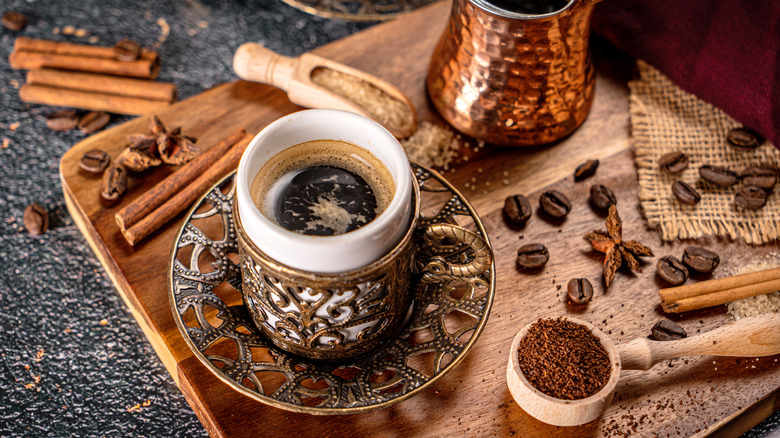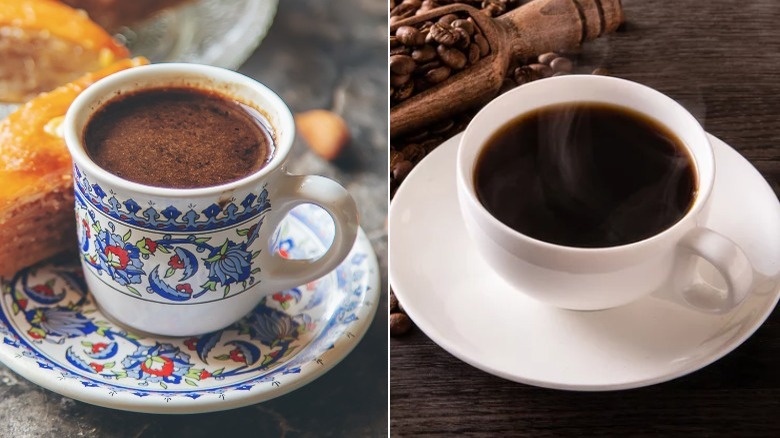What Makes Turkish Coffee Taste Different From Drip Coffee?
If you're a coffee fan who's never tried Turkish coffee, get up and go straight to the nearest Turkish restaurant and order a cup. We'll wait. Because drinking a cup of this brew is a rich experience.
It's also one with a rich history. Per Food Crumbles, the Ottoman Empire (founded in the 13th century and lasting for 600 years) was one of the world's first coffee-drinking cultures, and coffee and its coffeehouses have long been integral parts of Turkish life. According to the Hurriyet Daily News, Turkish coffeehouses throughout history have been natural spots where activists could gather, and when certain rulers, like Grand Vizier Köprülü and Sultan Murat IV, tried to shut the coffeehouses down, the people didn't stand for it: simply picking up, moving, and setting up shop elsewhere. No one was going to separate them from their brews.
Similarly, coffee in America also has its ties to the political realm, with the first coffee "makers" emerging in the 1780s with Biggin pots. In fact, the first cups of steeped coffee were sipped soon after the Boston Tea Party made drinking tea unpatriotic in the U.S., as Good Housekeeping explains. Fast forward around 200 years and Mr. Coffee in the 1970s became the world's first automatic-drip coffee maker produced for home use.
But histories aside, these two coffees — Turkish coffee and drip coffee — couldn't be more dissimilar when it comes to their brewing methods and the experience of their flavors. Here's the reason why Turkish coffee tastes so different from drip coffee.
The brewing methods of Turkish coffee and drip coffee
Turkish coffee is knock-your-socks-off strong. This is not necessarily because of the bean, but because of how the coffee is made. Perfect Daily Grind explains that Turkish coffee uses the immersion method to extract the coffee from the bean, which gives the coffee a bold flavor and fuller body.
Drip coffee, on the other hand, is more similar to percolated coffee — though drip coffee only runs its water through once. Percolators cycle their water through multiple times; a process known as over-extraction, as Roasty Coffee explains. Because of this, percolated coffee comes out more bitter, while drip coffee is described as cleaner and less strong: almost the opposite of the strong, bold flavor of Turkish coffee.
While Western immersion methods like the French press use a filter to remove the coffee grinds, the Turkish immersion method leaves those grounds in the cup, so the extraction process continues even after serving. Over-extraction of the caffeine can lead to bitterness, however (as it does with percolated coffee); which is why Eleven Coffees recommends that Turkish coffee be consumed within 10 minutes.

